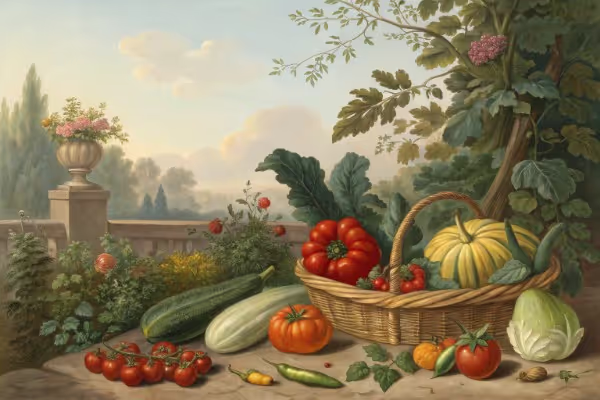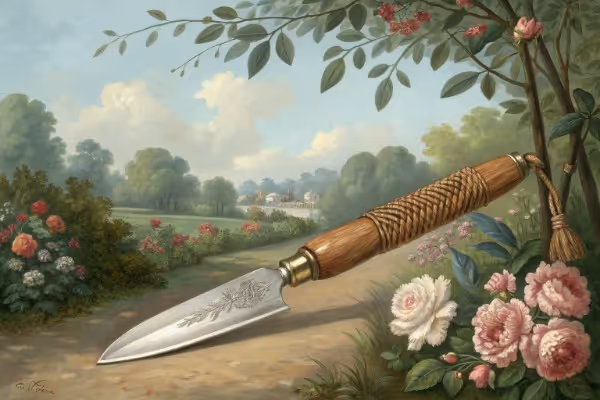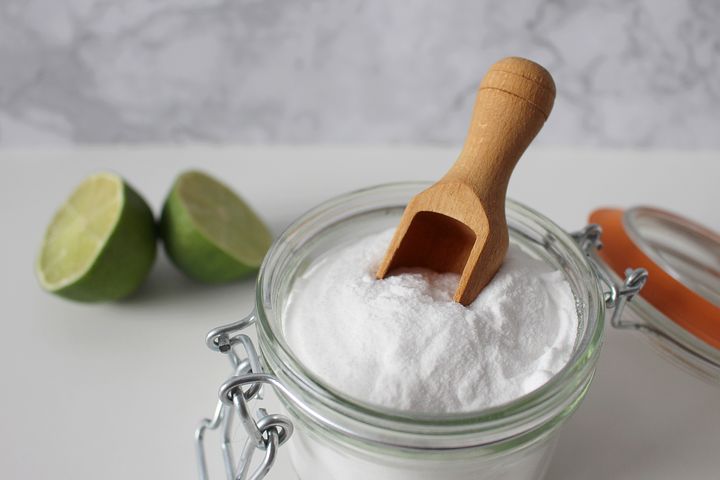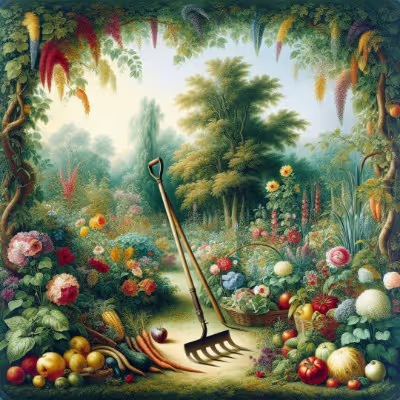Zone 3 Planting Guide: Flourishing Gardens in Cold Climates
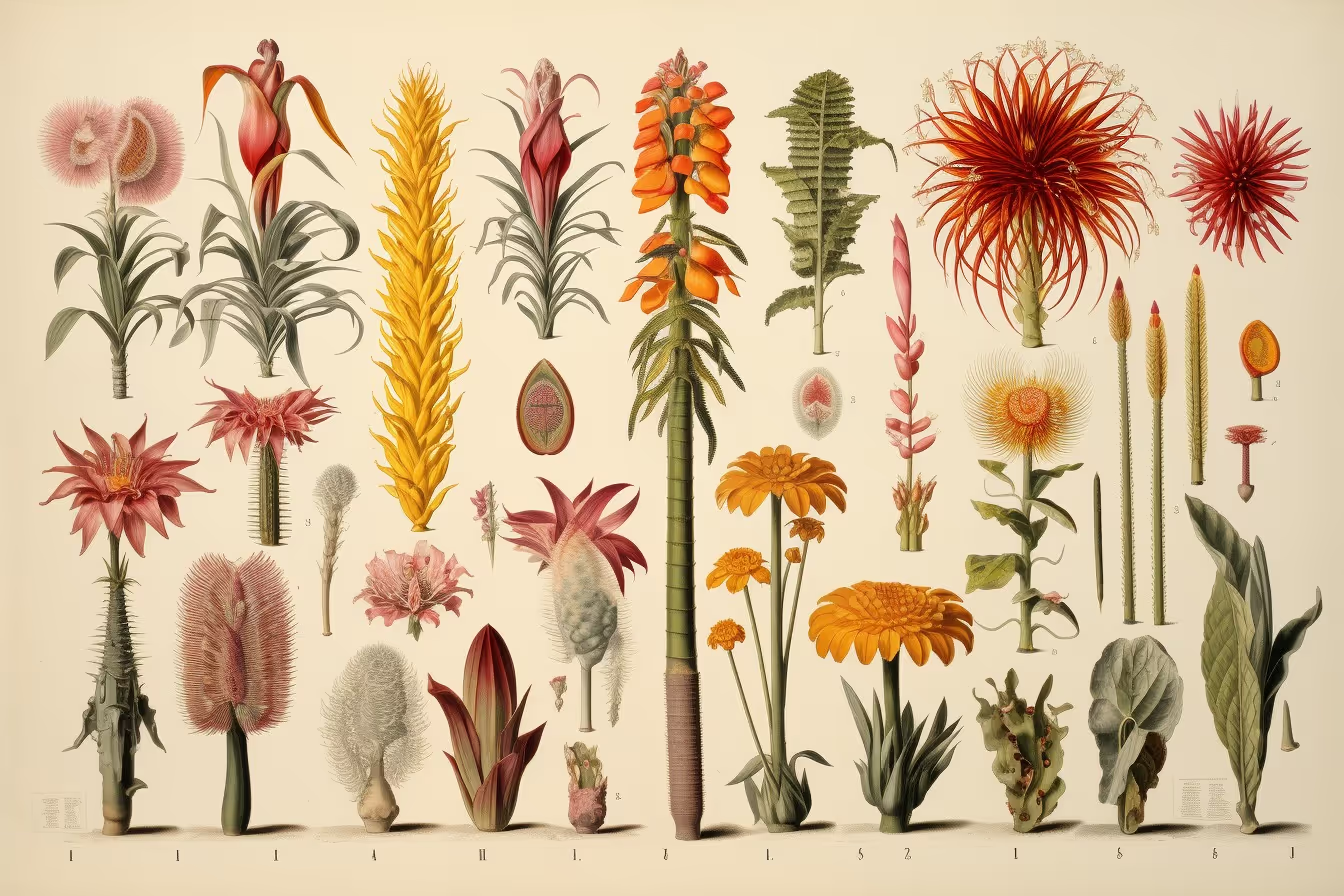
Zone 3 planting guide
A successful northern garden grows from smart preparation. This Zone 3 planting guide breaks down frost dates, resilient plant picks, and soil tricks to transform harsh cold into thriving blooms. Dig into practical tips that help your garden flourish well beyond a short growing season, turning chilly challenges into gardening triumphs. 🌱
Cheatsheet: Quick Guide for Zone 3 Cold-Climate Gardens
🌱 Best Plant Choices
- Perennials: Rhubarb, asparagus, horseradish, chives, raspberries, currants
- Vegetables: Kale, carrots, peas, potatoes, beets, spinach, onions, cabbage
- Herbs: Mint, thyme, oregano, parsley
- Flowers: Daylilies, echinacea, peonies, lupines, poppies
📅 Timing & Frost Facts
- Growing season: 80-120 days
- Last frost: May 15 - June 1 (avg. 30°F / -1°C)
- First frost: Sept 1 - Sept 20 (avg. 32°F / 0°C)
- Stat: 90% of Zone 3 gardeners start seeds indoors
❄️ Cold-Climate Survival Tips
- Select short-season or 60-day varieties
- Use cloches, row covers, or cold frames
- Mulch deeply—4-6 in (10-15 cm) prevents freeze-thaw roots
- Water mornings to prevent overnight ice
🍽️ Self-Sufficiency & Nutrition
- Root crops store 6+ months—boosts winter nutrition
- Leafy greens supply vitamin K, C, folate
- Grow protein-rich beans, peas for plant-based meals
⚒️ Tools and Products You'll Need
- Broadfork or sturdy spade
- High-quality compost
- Floating row cover or frost blankets
- Seed trays, heat mat (for starting indoors)
- Cold-hardy seeds/seedlings
- Thermometer for soil temps
- Mulch: straw, leaves, or wood chips
🪴 Step-by-Step Success
- Start seeds indoors 6-8 weeks before last frost (tomato, cabbage, peppers)
- Prep soil with 2-4 in (5-10 cm) compost after snowmelt
- Transplant or sow outside after soil warms to 45°F (7°C)
- Apply mulch immediately to hold soil moisture and warmth
- Shield plants with row covers at night until stable above 40°F (4°C)
- Water consistently during dry spells; best in early morning
- Harvest early and often to encourage new growth
Zone 3 planting guide: Flourishing Gardens in Cold Climates
I learned to read frost like street graffiti, quick and honest, after a June 8 whiteout iced my tomatoes and left the kale smug. That was the year I stopped fighting the cold and started using it.
What Zone 3 really means
Zone 3 pegs the average annual extreme low at minus 40 to minus 30 F, which is minus 40 to minus 34 C. That number shapes plant choice, winter prep, and how you stack heat during the shoulder seasons.
“USDA hardiness zones are based on the average annual extreme minimum temperature.” — USDA Agricultural Research Service, Plant Hardiness Zone Map
Daylength helps as much as heat up here. Summer light runs long, often 16 hours at these latitudes, which drives photosynthesis even when nights cool.
Microclimates I bank on
South-facing walls, dark stone mulch, and windbreaks create pockets that act like a half zone warmer. I track these spots with a cheap weather logger and plant my tender experiments there.
Snow is insulation, not just scenery. A stable 8 to 12 inch layer, which is 20 to 30 cm, guards perennials and keeps soil near 32 F which is 0 C while air plummets.
Frost calendar at a glance
Zone 3 frost-free windows run short, often 80 to 110 days, and they wobble by location. I plan for last frost in late May to mid June and first frost from early to mid September, then overbuild protection.
- Start seeds indoors: onions and leeks 10 to 12 weeks before last frost, brassicas 6 to 8 weeks, tomatoes 6 to 8 weeks, peppers 8 to 10 weeks.
- Direct sow cool crops as soon as soil hits 40 to 45 F, which is 4 to 7 C, then cover with fabric.
Soil and site that actually warm up
Raised beds add 2 to 4 F, which is 1 to 2 C, in spring soil compared to ground level in my trials, which moves sowing dates up a week. I aim for high organic matter and crumb structure so cold soils drain fast and wake up roots.
Black or infrared-transmitting plastic mulch over cucurbits and nightshades gives me earlier fruit set. I pair it with drip lines to avoid evaporative cooling from overhead water.
Season-stretching toolkit that pays for itself
- Floating row cover by weight: 0.5 oz per sq yd adds about 2 F, 0.9 to 1.2 oz adds 4 to 6 F, and 1.5 to 2.0 oz serves for frost nights and shoulder seasons.
- Low tunnels with 6 mil greenhouse plastic plus inner row cover create a double layer that survives spring squalls.
- Cold frames with polycarbonate lids keep lettuce crisp into November and get March spinach up fast.
- Soil heat from germination mats or buried heat cables wakes cucurbits and peppers. I only heat the root zone to 70 to 75 F which is 21 to 24 C while air stays cooler.
“Floating row covers can increase air temperature by 2 to 8 F, depending on fabric weight and sunlight.” — University Extension guidance on season extension
Zone 3 planting calendar that actually works
- Late winter: Start onions, leeks, celery, and perennial herbs indoors. Check seed viability with a 10-seed test.
- March to April: Start brassicas, tomatoes, peppers. Pre-sprout peas on paper towels, then sow under fabric.
- April to early May: Direct sow spinach, mache, radish, arugula, carrots, parsnips, and hardy greens under cover.
- Mid to late May: Transplant brassicas with collars for cutworms. Set potatoes shallow in warmed beds, then hill later.
- Early to mid June: After frost risk tapers, plant tomatoes, peppers, squash, cucumbers, and beans, then keep covers handy.
- July: Succession sow greens every 10 to 14 days. Start fall carrots and beets.
- August: Seed spinach and mache for fall. Pinch tomato blossoms you won’t ripen in time and shift the plant’s energy.
- September: Cover early on clear nights. Pull green tomatoes for indoor ripening and leave the vines for compost feedstock.
Varieties that earn bed space in Zone 3
- Tomatoes: ‘Stupice’, ‘Glacier’, ‘Bush Early Girl’, ‘Manitoba’, ‘Sub-Arctic Plenty’.
- Peppers: ‘Ace’, ‘King of the North’, ‘Carmen’, ‘Gypsy’ under low tunnels.
- Brassicas: ‘De Cicco’ broccoli, ‘Arcadia’, ‘Winterbor’ kale, ‘Red Russian’ kale, ‘Gonzales’ cabbage.
- Roots: ‘Mokum’, ‘Napoli’, ‘Bolero’ carrots, ‘Detroit Dark Red’ beets, ‘French Breakfast’ radish.
- Potatoes: ‘Norland’, ‘Yukon Gold’, ‘Chieftain’, ‘Purple Viking’.
- Peas: ‘Alaska’, ‘Maestro’, ‘Sugar Ann’, ‘Cascadia’.
- Beans: ‘Provider’, ‘Contender’, ‘Royal Burgundy’ that shrugs off cool soil.
- Squash and cukes: ‘Black Beauty’ zucchini, ‘Costata Romanesco’ with heat, ‘Calypso’ pickling cucumber, ‘Minnesota Midget’ melon inside protection.
- Greens: ‘Winter Density’ lettuce, ‘Muir’ for heat bumps, ‘North Pole’ butterhead, ‘Space’ spinach, ‘Winter Bloomsdale’ spinach.
- Herbs: Chives, thyme, oregano, tarragon, and dill, with basil under low tunnels.
Fruit that laughs at minus 40 F which is minus 40 C
- Apples: ‘Haralson’, ‘Goodland’, ‘Norland’, ‘Wealthy’, ‘Norkent’ on Antonovka or Ranetka rootstock.
- Plums and cherries: ‘Toka’ and ‘Pembina’ plums with pollinators paired, ‘Evans/Bali’ sour cherry.
- Berries: Haskap honeyberries, saskatoon serviceberry, ‘Boyne’ and ‘Latham’ raspberries, ‘Kent’ and ‘Sparkle’ strawberries, currants and gooseberries.
- Workhorses: Rhubarb, sea buckthorn, and aronia for shelterbelt edges.
I heel in young trees a touch deeper in the first year and wrap trunks for sunscald. Snow fencing traps drifts that save buds.
Heat stacking the simple way
- Lay black mulch for long-season crops, then switch to reflective silver in July if beetles show up.
- Set water barrels inside tunnels as thermal batteries and open at sunrise to dump humidity.
- Use stone edging on south beds to bank radiant warmth and break spring winds.
Cool soil biology that still gets the job done
Below 50 F which is 10 C, microbes slow, so I feed with finished compost and fish hydrolysate in light doses. Legumes need the right rhizobia, so I inoculate peas and beans in new beds and the nodules tell the story by midseason.
Mycorrhizal drenches at transplant on onions and brassicas gave me thicker roots in side-by-side beds. The payoff showed during dry August spells.
Water strategy for short seasons
Drip lines warm beds faster than overhead and keep foliage dry on near-freezing nights. Morning irrigation avoids nighttime chill on leaves.
I mulch with shredded leaves once soils warm to hold moisture without freezing the root zone. Bare soil in spring, mulched soil in summer, that rotation works up here.
Common mistakes and how I corrected them
- Transplanting too early without covers, now I wait for a string of 45 F which is 7 C nights before setting tomatoes.
- Overfeeding nitrogen in June, which made soft growth that frosted easily, now I side-dress with composted manure and a light potassium boost.
- Skipping hardening off, which stunted peppers for weeks, now I ramp light and wind over 7 to 10 days.
- Single sowing dates, now I stagger in three waves and always keep extra starts.
GDD and timing without guesswork
I track growing degree days with base 50 F which is 10 C for warm crops and base 40 F which is 4 C for cool crops. When a variety lists 60 days, I read that as a GDD target and match it to my site history.
Those numbers beat the calendar by a mile. They also tell me when to pull covers at night to avoid heat stress during rare hot spells.
Top purchases that moved the needle for Zone 3
- Heavy row cover, at least 1.2 oz per sq yd, plus spring clips and sandbags.
- UV-stable low tunnel plastic, 6 mil, with wire hoops at 4 foot which is 1.2 m spacing.
- Two thermostatically controlled heat mats for seed starting and a basic soil thermometer.
- Black mulch film and a roll of reflective silver mulch for pest pressure shifts.
- Drip kit with pressure regulator and inline filter for clean, warm watering.
- Weather logger with min and max memory to catch radiational frost nights.
- Tree wraps and a couple of snow fences for fruit tree protection and drift management.
Flavor and frost, the sweet science
Frost triggers starch to sugar in many cool crops, which is why October carrots taste like candy. I schedule fall plantings to hit maturity as nights dip to 28 to 30 F which is minus 2 to minus 1 C, then cover lightly.
Kale, Brussels sprouts, and parsnips all improve after a nip. I leave a few rows for the first hard frost and those suppers feel earned.
Notes from the field and credible sources
- USDA ARS Plant Hardiness Zone Map, updated methodologies and the 10 F banding that defines zones.
- University of Minnesota Extension and similar northern programs on short-season vegetable culture, season extension, and floating row cover performance.
- NOAA solar data on daylength at northern latitudes and its effect on photosynthesis windows.
- Prairie province and upper Midwest extensions on frost-free period averages and cultivar performance under cold nights.
“About half of mapped locations in the latest Plant Hardiness Zone Map shifted by a half zone relative to the prior map.” — USDA summary of the 2023 update
My fast checklist before planting day
- Check soil temp at 9 a.m. three days in a row, not air temp.
- Stage covers, hoops, and anchors before a cold front, not after.
- Have backup starts for every tender crop. I call it crop insurance I can eat.
- Label beds with sowing date and expected GDD so harvest windows do not sneak past.
Final field note
Cold climates reward patience and nerve. Give plants shelter, bank heat, respect the clock, and the garden answers with flavor you cannot buy.
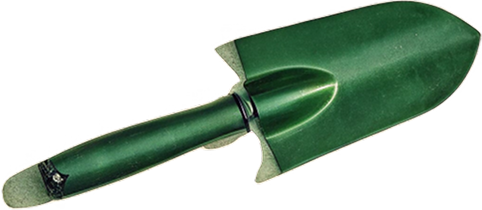
Want smarter plant choices? 🪴
Frequently Asked Questions for Zone 3 Planting Success
What perennial plants reliably survive Zone 3 winters?
Zone 3 calls for plants with a rugged soul. Hardy perennials like coneflower (Echinacea), daylilies, Siberian iris, and stalwart shrubs like potentilla and lilacs flourish without fuss despite brutal winter tantrums.
When is the ideal moment to plant vegetables outdoors in Zone 3?
Timing dances on thin ice in Zone 3 gardening. Typically, wait until late May to early June, when soil temperatures linger above 40°F (4°C). Patience rewards with thriving crops—premature planting risks frost carnage.
Can fruit trees thrive in Zone 3 conditions?
Fruit trees can indeed bear bounty here, provided you pick wisely. Choose hardy warriors like apple varieties (Norland, Prairie Magic), cherry hybrids (Evans, Romance Series), and plums (Pembina, Brookgold). Shield younger saplings during early life to ensure survival.
How do I effectively protect plants from early frost?
Outwit Jack Frost through intentional techniques. Employ row covers, cloches, or cold frames to buffer tender shoots. Likewise, generous mulching acts as insulation, keeping roots warm and cozy beneath the surface.
Are raised beds advantageous in Zone 3?
Raised beds serve as trusted accomplices in Zone 3 gardening. They warm quicker in spring, offering earlier planting possibilities. Enhanced drainage also wards off soggy soils, ideal for hesitant root systems.
What mulch type works best for Zone 3 gardens?
Go organic: straw, shredded leaves, or wood chips provide excellent insulation and moisture retention. Avoid piling mulch directly against plant stems—allow healthy breathing room to discourage rot.
Every Zone 3 planting guide boils down to three things: timing, tenacity, and the right plants. The short season demands quick action and a willingness to adapt—start seeds early, choose cold-hardy varieties, and don’t be afraid to experiment. Pay attention to soil, use good mulch, and never underestimate the value of a well-sharpened spade.
If you’re picking full sun vegetables or building a new bed, always check your frost dates and trust experience as much as instructions. Don’t lose heart if some crops fail; every mistake is a lesson in resilience. This Zone 3 planting guide is your tool for thriving in the chill, not just surviving it. The north may be tough, but your garden can be tougher.
The Prepper’s Guide: Zone 3 Resilience for Cold Climate Survival
Select Crops for Maximum Calories and Storage
- Potatoes: Yield ~15 lbs (6.8 kg) per plant; store up to 8 months at 40°F (4°C).
- Carrots: Provide vitamins A, K; storable 6 months at 32–40°F (0–4°C).
- Cabbage: High in vitamin C; preserves well fermented as sauerkraut.
- Winter Squash: Rich in calories; store up to 6 months at 50–55°F (10–13°C).
- Dried Beans: Protein-dense; shelf-life over 1 year when dried thoroughly.
Cold-Climate Medicinal Herbs for Health Care Independence
- Echinacea: Immunity support; perennial to -40°F (-40°C).
- Chamomile: Calming digestive remedy; hardy annual, self-seeds reliably.
- Calendula: Skin-healing and anti-inflammatory tinctures; hardy annual.
- Mint Varieties: Digestive aid; perennial, withstand temperatures below -20°F (-29°C).
Cold Protection Techniques for Extended Harvest
- Construct low tunnels from PVC hoops and heavy row covers to extend seasons by 4–6 weeks.
- Create cold frames using salvaged windows set on sturdy wood bases; maintain soil warmth for late-season greens.
- Apply thick mulch layers—straw or leaves—to insulate root vegetables for winter harvesting.
Sustainable Fuel Sources from Zone 3 Gardens
- Willow Coppicing: Fast-growing fuel source; harvest renewable firewood every 3–4 years.
- Sunflower Seed Oil: Cooking fuel; high-yielding variety produces ~1 cup oil per lb (0.45 kg) of seeds.
Water Preservation Methods for Short Growing Seasons
- Integrate rain barrels to collect precipitation; 1 inch (2.54 cm) rain yields ~600 gallons (2,271 liters) per 1,000 sq ft (93 sqm).
- Cover soil with thick organic mulch to minimize evaporation, conserving moisture during dry spells.
Find out which plants will thrive in your garden!
Answer a few fun questions and get custom plant recommendations perfect for your space. Let’s grow something amazing together!

start your season
